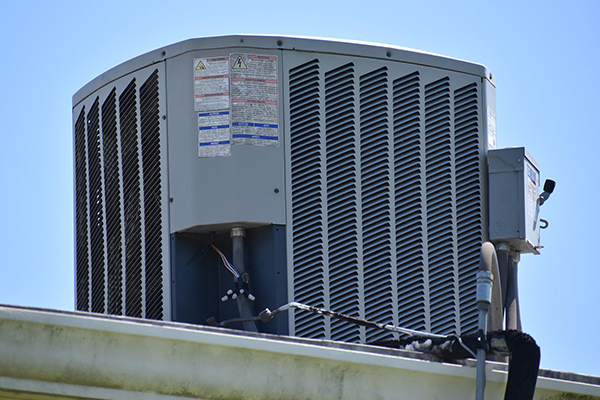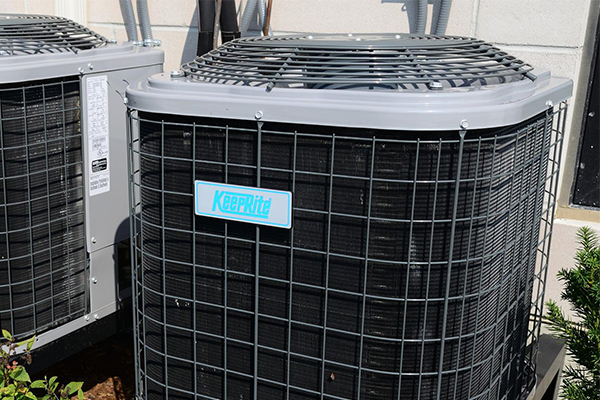
Avoid confusion when you are considering whether to install a rooftop AC unit. Knowing where your AC unit will perform best will help make informed decisions when it comes time for installation.
elearning-training.com gathered essential information about the pros and cons of installing an AC unit on your roof.
Pros of Rooftop AC Installation
Having your AC unit installed on your roof can offer some interesting benefits that may be surprising. Here are a few of the pros:
- Rooftop units can dramatically reduce your energy usage, saving you money.
- You and your guests won’t have to deal with the sometimes startling sounds the unit makes when it starts up
- Your yard gains the space that otherwise would’ve been occupied by the AC’s condenser unit
- Installing the unit on the roof removes it from harm’s way (accidental damage and thievery)
- The unit is safe from overgrowing vegetation and flood damages
Note: A rooftop location ensures that the wires, hoses, and housing that connects the system components are close together to maximize operational efficiency.
Tip: Installing a pathway or reinforcing the roofing system around the AC unit will help prevent damages during installation or routine maintenance.
Cons of Rooftop AC Installation
The following are some of the drawbacks of an AC roof installation:
- You are less likely to detect visible and audible signs of trouble before they become significant issues
- A rooftop installation will result in multiple roofing system penetrations, which can ultimately lead to leaks
- Over time, the weight of the unit may cause your roof to sag, interrupting its ability to efficiently shed rainwater
- With a rooftop installation comes increased foot traffic on your roofing system, potentially leading to wear or damages
- Reduced accessibility for regular inspections and maintenance
Tip: Roof location is a key factor when installing an AC unit. Your unit should be installed closest to necessary connection points and ventilation access.
Weather Conditions

Before deciding on a rooftop AC installation, your region’s climate should be taken into consideration. If you are situated in a region that experiences intense heat or severe storms, a rooftop AC installation will require more frequent maintenance visits and physical shelter/protection to keep it in top working condition.
Rooftop AC Maintenance
With a rooftop AC unit, common issues may be harder to detect in their initial stages because your unit is out of sight and out of mind. If such issues are only addressed during your AC system’s regular maintenance visit, they can quickly spiral into significant and costly system malfunctions. Some of these issues may include:
- Leaks
- Odd sounds
- Blocked vents
- Vibrations
Tip: For rooftop AC installations, consider increasing the number and frequency of maintenance visits to prevent or detect any potential mechanical issues.
Interior HVAC System Location
Under normal circumstances, AC units are installed outside of a home. They are purposefully installed within close proximity to the interior portion of the HVAC system. This location helps optimize the wires, hoses, and unit housing to maximize the unit’s efficiency.
Note: An interior HVAC system located on your home’s ground floor or in your basement may benefit from the compressor being installed in the yard. If your interior HVAC unit is located on a top floor or in your attic, the roof may be the ideal location to keep the two unit components close together.

Roofing System Load Capacity
Before considering or planning for a rooftop installation of any equipment, including an AC unit, the roofing system should be inspected and prepared or reenforced to properly support the additional weight of the equipment.
Tip: Contact a professional roofing company to evaluate your roofing system and recommend a course of action for reinforcing the roof, equipment penetrations, and walkway installation or surface traffic protection.
Rooftop AC Installation
In this article, you discovered pros and cons of rooftop AC installations, the effects and consequences they can have on your roofing system, and how keeping unit components in close proximity can increase your unit’s efficiency.
Carefully considering your roofing system’s capacity, your region’s weather patterns, and your unit’s location will help you reach a well-informed decision when it comes time to install your AC unit.
Not knowing the pros and cons of a rooftop AC unit can result in costly roofing system or equipment failure.
Sources:
energy.gov/energysaver/central-air-conditioning
gsa.gov/cdnstatic/High_Efficiency_HVAC-508-11-15b.pdf